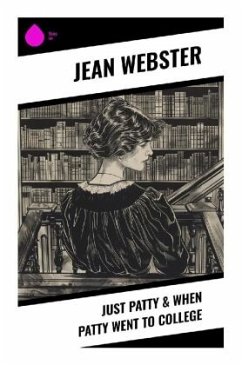In "Just Patty" and its sequel "When Patty Went to College," Jean Webster presents a charming coming-of-age narrative centered around the spirited Patty, an orphan whose journey towards self-discovery unfolds against the backdrop of early 20th-century America. Webster's distinctive epistolary style, rich in humor and heart, allows readers an intimate glimpse into Patty's whimsical thoughts and adventures, engaging them through her letters and reflections. The novels, nestled within the genre of young adult literature, tackle themes such as identity, education, and social class, while also reflecting the progressive ideas prevalent during Webster's lifetime. Jean Webster, born in 1876, was deeply influenced by her background as an orphan raised under the care of her wealthy aunt, coupled with her progressive education at Vassar College. These experiences fueled her interest in the lives of young women and their empowerment, informing her portrayals of strong, independent characters. Webster's awareness of societal expectations for women at the turn of the century shines through in her works, as she subtly critiques these norms while advocating for personal freedom and ambition. I highly recommend "Just Patty" and "When Patty Went to College" to readers seeking an engaging, light-hearted exploration of friendship, ambition, and societal expectations in a young woman's life. Through Patty's endearing charm and relatable experiences, readers will find themselves both entertained and enlightened, making these novels timeless classics in the world of young adult literature.
Bitte wählen Sie Ihr Anliegen aus.
Rechnungen
Retourenschein anfordern
Bestellstatus
Storno








